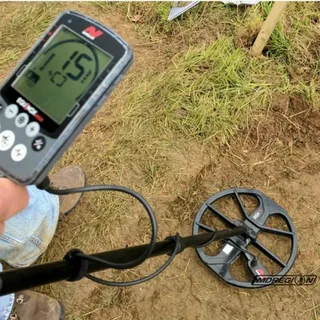Mining Comp, a rising force in the mining industry, has been at the forefront of revolutionizing traditional mining practices. With their innovative approaches and cutting-edge technologies, Mining Comp has been spearheading a transformation in the way mining operations are conducted. Their rise has not only brought about significant advancements in efficiency and sustainability but has also set a new standard for the industry as a whole. In this article, we will explore the impact of Mining Comp on the mining industry and the groundbreaking changes they have introduced.
Revolutionizing the Mining Industry: The Rise of Mining Comp is a comprehensive analysis of the evolving mining sector. The article discusses the incorporation of advanced technologies such as drones, 3D mapping, and automation in the mining process, leading to increased efficiency and safety. It also covers the shift towards sustainable and environmentally friendly practices in response to growing concerns about the industry’s impact on the planet. Overall, the piece provides a detailed look at the innovative strategies and advancements reshaping the mining landscape.
Top 10 Mining Companies Making Waves in the Industry

1. BHP Billiton: One of the largest mining companies in the world, BHP Billiton has a diverse portfolio of assets including iron ore, coal, copper, and petroleum.
2. Rio Tinto: Known for its expertise in mining and processing iron ore, Rio Tinto is also involved in the production of aluminum, copper, and diamonds.
3. Vale: A major player in the global mining industry, Vale is a leading producer of iron ore, nickel, and copper, with operations in Brazil and around the world.
4. Glencore: With a focus on commodities such as coal, copper, and zinc, Glencore is a significant force in the mining industry, with operations spanning across the globe.
5. Anglo American: This mining giant has a strong presence in the diamond, platinum, and copper sectors, with operations in Africa, South America, and Australia.
6. Freeport-McMoRan: A leading producer of copper, Freeport-McMoRan also mines for gold and molybdenum, with operations in North and South America, as well as Indonesia.
7. Newmont Mining: Known for its gold production, Newmont Mining also has operations in copper and silver mining, with mines in North and South America, as well as Australia.
8. Barrick Gold: As one of the largest gold mining companies in the world, Barrick Gold operates mines in North and South America, as well as Africa and Australia.
9. Teck Resources: With a focus on copper, zinc, and steelmaking coal, Teck Resources is a prominent player in the mining industry, with operations in Canada, the United States, and Chile.
10. Gold Fields: Specializing in the exploration and production of gold, Gold Fields has mining operations in South Africa, Ghana, Australia, and Peru, making it a significant force in the global gold mining industry.
Risk and Reward: The Challenges Facing Mining Companies Today

Risk and Reward: The Challenges Facing Mining Companies Today is a comprehensive report that provides insight into the unique challenges that mining companies face in the current business environment. It covers topics such as regulatory compliance, environmental concerns, technological advancements, market volatility, and geopolitical risks. The report also discusses strategies that mining companies can implement to mitigate these risks and capitalize on potential rewards. It is a valuable resource for industry professionals, investors, and stakeholders looking to gain a deeper understanding of the complexities of the mining sector.
The Rise of Green Mining: How Companies Are Embracing Sustainability

The rise of green mining refers to the increasing trend of mining companies adopting sustainable practices and embracing environmental responsibility. This shift is driven by a growing awareness of the negative impact of traditional mining methods on the environment and surrounding communities. Green mining involves the use of eco-friendly technologies, renewable energy sources, and responsible waste management to minimize the industry’s carbon footprint. Companies are also investing in reclamation efforts to restore mined lands and reduce their overall environmental impact. This shift towards sustainability is not only driven by ethical considerations but also by economic benefits, as consumers and investors are placing a higher value on environmentally responsible practices. Overall, the rise of green mining represents a significant step towards a more sustainable and environmentally-conscious mining industry.
Exploring the Future: Innovations Driving the Mining Industry Forward

Exploring the Future: Innovations Driving the Mining Industry Forward is a conference that brings together industry experts, researchers, and innovators to discuss the latest advancements and trends in mining technology. The event covers topics such as automation, artificial intelligence, and sustainability in mining, providing valuable insights into the future of the industry. Attendees can expect to learn about cutting-edge technologies and strategies that are shaping the future of mining and driving the industry forward.
Women in Mining: Breaking Barriers and Shattering Stereotypes
Women in Mining: Breaking Barriers and Shattering Stereotypes is a movement aimed at promoting gender diversity and inclusion in the mining industry. This initiative seeks to challenge the traditional stereotypes and biases that have historically discouraged women from pursuing careers in mining. By highlighting the contributions and successes of women in the industry, this movement aims to inspire and empower more women to consider and pursue opportunities in mining. Through advocacy, mentorship, and networking, Women in Mining aims to create a more inclusive and supportive environment for women in the mining sector.
The Social Responsibility of Mining Companies: Balancing Profit and Impact
The social responsibility of mining companies involves finding a balance between generating profits and minimizing the negative impacts on the environment and local communities. This includes implementing sustainable mining practices, such as reducing water and energy consumption, adopting responsible waste management, and preserving biodiversity. Mining companies also have a responsibility to respect the rights and well-being of indigenous populations and local communities affected by their operations. This may involve engaging in meaningful consultation and collaboration with these stakeholders, as well as providing social and economic opportunities for them. Additionally, mining companies can contribute to local development through infrastructure projects, job creation, and community investment. Overall, the social responsibility of mining companies requires a comprehensive approach to managing their impact on society and the environment.
Mitigating Risk: How Mining Companies Are Prioritizing Safety and Health
Mining companies are prioritizing safety and health by implementing various measures to mitigate risk. This includes following strict safety protocols, providing regular training to employees on safety procedures, and investing in advanced technology and equipment to improve worker safety. Additionally, companies are also focusing on promoting a culture of safety and health awareness among workers and fostering a safe working environment. By prioritizing safety and health, mining companies aim to reduce accidents, minimize environmental impact, and ensure the well-being of their workforce.
The Influence of Politics and Policy on Mining Companies
The influence of politics and policy on mining companies is substantial, as governments can impose regulations, taxation, and restrictions that directly impact the profitability and operations of mining companies. Political instability in a region can also disrupt mining operations and scare off potential investors. Additionally, changes in government policies regarding environmental protection and land use can significantly affect mining activities. Therefore, mining companies closely monitor and engage with political and policy developments to assess and mitigate potential risks to their operations.
The Role of Mining Companies in Global Supply Chains
Mining companies play a crucial role in global supply chains by extracting essential raw materials that are used in various industries. These materials include metals, minerals, and precious stones, which are utilized in manufacturing processes for products such as electronics, automobiles, construction materials, and jewelry.
In addition to extracting these raw materials, mining companies are also responsible for transporting, refining, and distributing them to end users. They work in collaboration with other stakeholders in the supply chain, such as transportation companies, smelters, and manufacturers, to ensure the efficient and reliable delivery of these materials to the market.
Furthermore, mining companies are increasingly being held accountable for their social and environmental impact. Many companies are implementing sustainable practices, responsible sourcing, and ethical labor standards to minimize their footprint and promote the well-being of local communities and ecosystems.
Overall, mining companies play a critical role in global supply chains by providing the essential raw materials needed for various industries and promoting sustainability and ethical practices within their operations.
Investment Opportunities: Assessing the Performance of Mining Companies
See also: metal detectors for gold
Investment opportunities in the mining industry involve assessing the performance of mining companies. This can include evaluating factors such as production rates, mining reserves, operational costs, and commodity prices. Investors may also consider the company’s financial stability, exploration potential, and environmental and social responsibility. Assessing these factors can help investors identify lucrative opportunities within the mining sector and make informed investment decisions.










